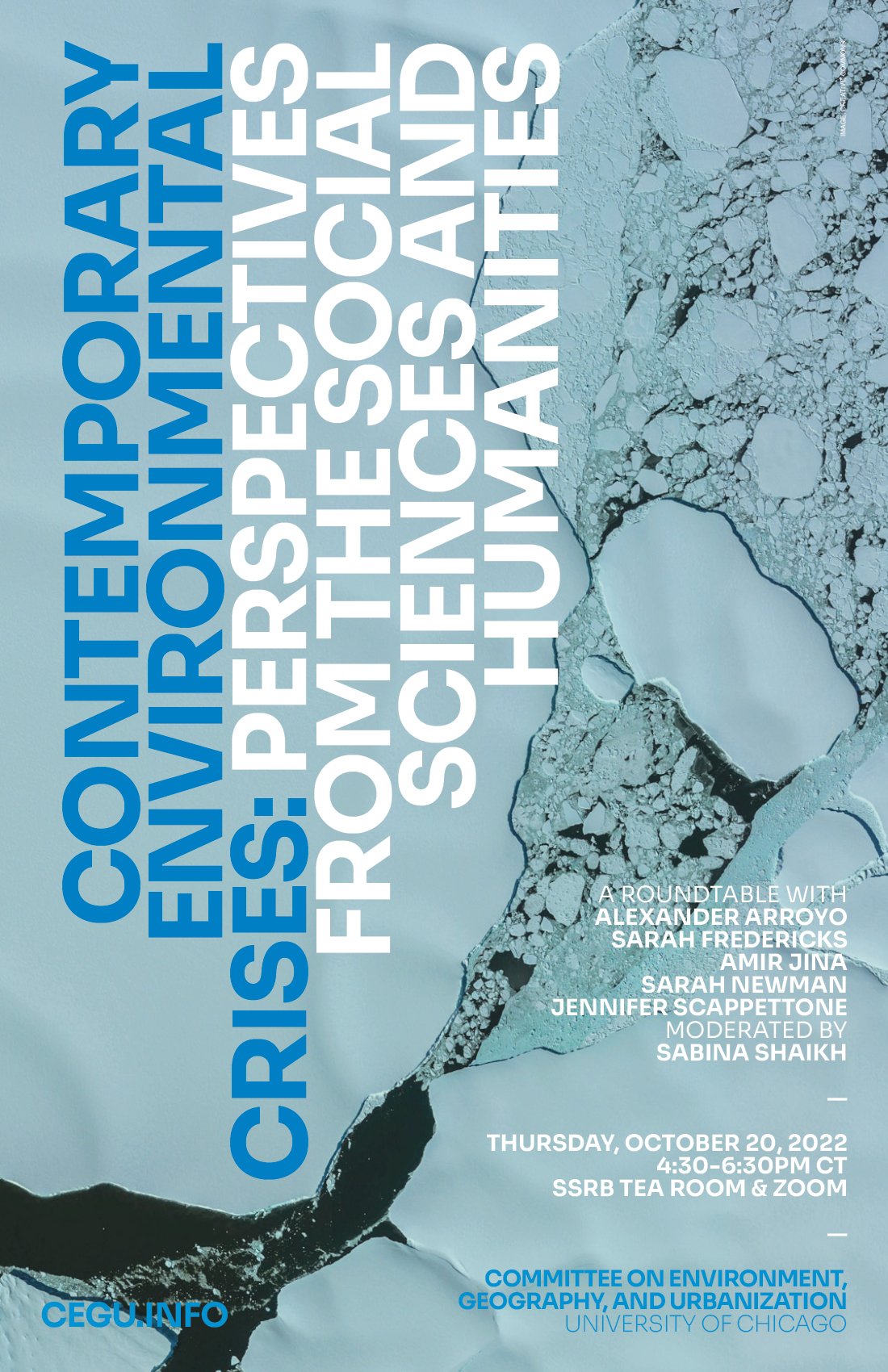CONTEMPORARY ENVIRONMENTAL CRISES: CEGU PANEL
Delighted to report that I'll be part of this new program and its launch to the University of Chicago community: the Committee on Environment, Geography, and Urbanization. (That title almost makes it seem as though I don't need to explain why I'm interested in so many "different" fields! Except they'd need to put POETICS in there to capture all....and many don't see the relation, YET)
A Roundtable with CEGU Faculty Alexander Arroyo, Sarah Fredericks, Amir Jina, Sarah Newman, and Jennifer Scappettone; moderated by Sabina Shaikh
4:30–4:45pm—Welcome Reception; 4:45–6:30pm—Roundtable Event
SSRB Tea Room & Zoom Webinar (hybrid event)
--
Following the latest report of the Intergovernmental Panel on Climate Change (IPCC), UN secretary-general António Guterres declared that the earth “is on a fast track to climate disaster.” In order to avoid “tipping points that could lead to cascading and irreversible climate impacts,” secretary-general Guterres advocated an accelerated shift to renewable energy sources and a rapid downscaling of fossil fuel production and consumption. However, even as catastrophic floods, storms, heatwaves and fires proliferate across the planet, accompanied by devastating human suffering, population displacement, landscape destruction, and infrastructure damage, the fossil fuel industry remains globally dominant. While some governments seek to accelerate the transition to renewable energy and more sustainable social arrangements, many powerful states continue to subsidize fossil fuels and to grant permits for their continued exploration and extraction. Amidst these contradictory tendencies, climate activists and citizens around the world continue to develop strategies to protest the status quo, to pressure governments to limit or ban CO2-emitting machines, and to repair the massive social and environmental damage induced during the “long fossil boom” of the last 150 years.
Against the background of these intense transformations, crises and struggles, this panel of CEGU faculty considers the contribution of social science and humanities research to our ability to understand—and to shape—emergent environmental conditions, from the local to the planetary scales. The panel brings together scholars from diverse disciplinary locations—archeology, anthropology, economics, English, creative writing, geography, political ecology, philosophy, and public policy—to dialogue and debate about contemporary climate emergencies, their historical genealogies, their uneven geographies, their emergent dynamics, and their future implications. This event represents the first in a year-long series of discussions organized by CEGU to support research, teaching, and public dialogue about the social, historical, spatial and (geo)political dimensions of contemporary environmental transformations and crises.
--
The Committee on Environment, Geography and Urbanization (CEGU) is the culmination of a long-standing collaboration between the Program on the Global Environment (PGE), the Committee on Geographical Sciences (CGS), and many other faculty across the social sciences and humanities at the University of Chicago whose research and teaching strongly articulates to the societal and spatial dimensions of climate change, biodiversity loss, and environmental transformation.
Register at https://www.eventbrite.com/e/a-roundtable-on-contemporary-environmental-crises-tickets-428076998827 - Further event listings can be found at cegu.info.
